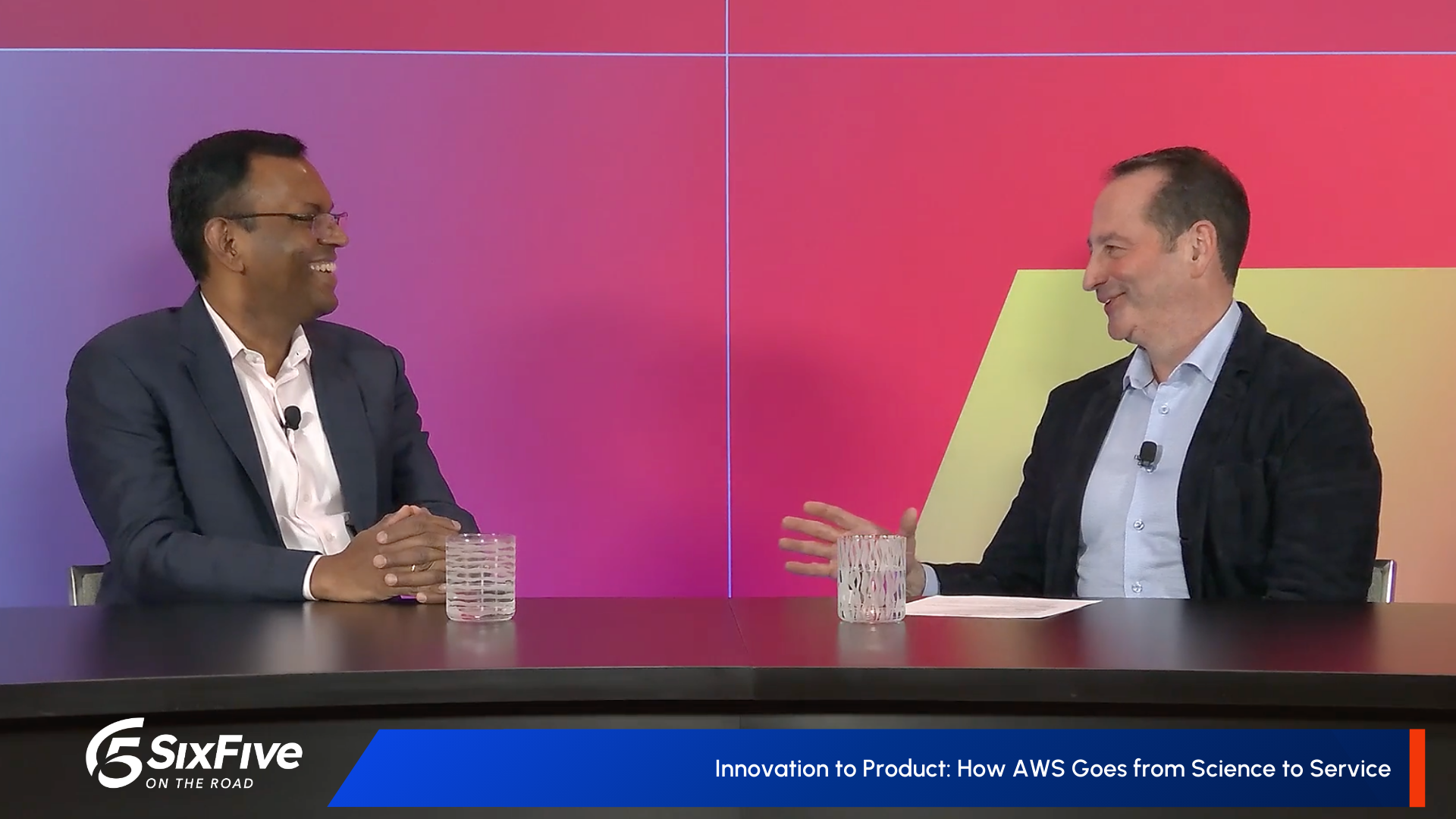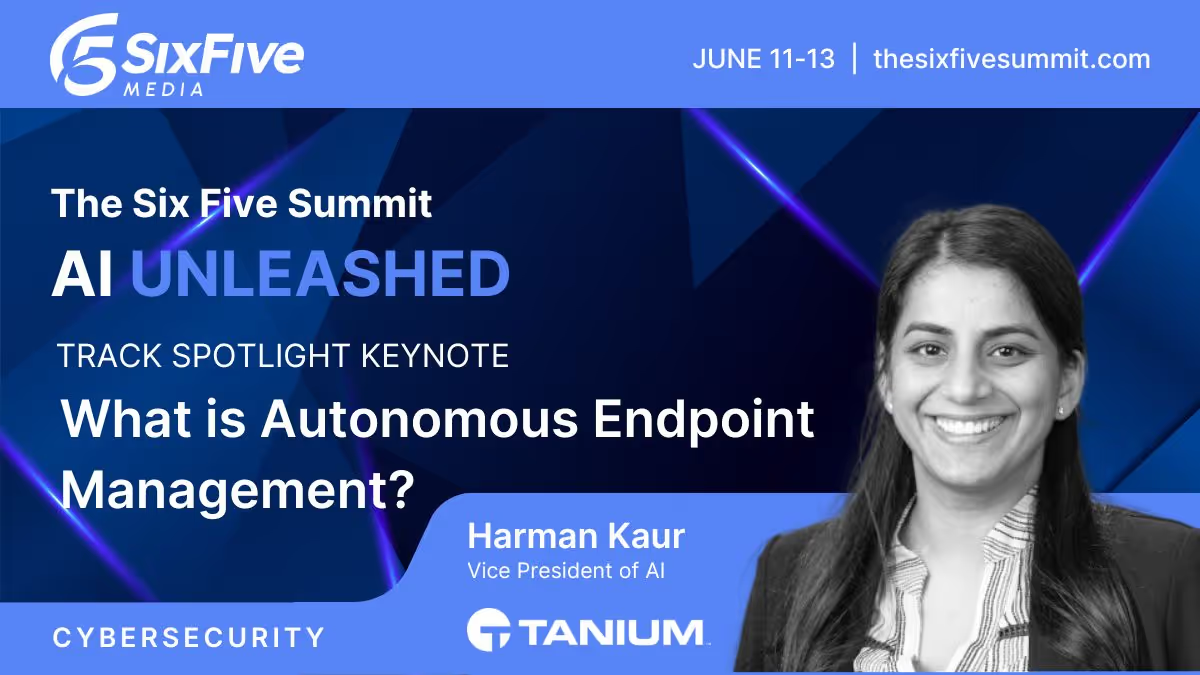From Firefighting to Foresight: Inside Cisco IQ – Six Five On The Road
Liz Centoni, EVP & Chief Customer Experience Officer at Cisco, joins Daniel Newman to unpack how Cisco IQ shifts IT teams from reactively solving problems to proactively preventing them, while helping partners and customers realize the full potential of AI-powered operations.
Enterprise IT teams need to shift from constant crisis response to predictive, AI-driven operations. Until now, that’s been easier said than done.
From Cisco’s Partner Summit 2025, host Daniel Newman is joined by Cisco's Liz Centoni, EVP & Chief Customer Experience Officer, for a conversation on Cisco IQ: a unified, AI-powered platform designed to transform the customer experience by moving IT teams from reactive troubleshooting to proactive, predictive operations. The discussion explores what it truly means to build an “AI-ready” enterprise, closes the readiness gap for businesses, and explains how Cisco IQ supports partners and personalizes engagement through evolving agentic AI.
Key Takeaways Include:
🔹Transitioning from reactive to predictive IT: Cisco IQ empowers teams to move beyond problem-solving to preventing issues by leveraging unified, AI-driven insights.
🔹Adaptive intelligence and personalization: Cisco IQ’s agentic AI learns from every interaction, continuously evolving to deliver more tailored, effective support to customers.
🔹Enhanced partner value proposition: The platform simplifies partner support, enabling them to demonstrate tangible value and stand out in a crowded market by maximizing operational foresight.
🔹The future of customer experience: Autonomous agents and AI-driven operations are set to redefine enterprise IT relationships, offering new opportunities for efficiency and innovation.
Learn more at Cisco.com.
Watch the full video at sixfivemedia.com, and be sure to subscribe to our YouTube channel, so you never miss an episode.
Or listen to the audio here:
Disclaimer: Six Five On The Road is for information and entertainment purposes only. Over the course of this webcast, we may talk about companies that are publicly traded, and we may even reference that fact and their equity share price, but please do not take anything that we say as a recommendation about what you should do with your investment dollars. We are not investment advisors, and we ask that you do not treat us as such.
Daniel Newman: Hey, everyone. The Six Five is On the Road. We are here at Cisco Partner Summit 2025 in sunny San Diego, California. It's great to be with you all. The big theme of this event, no surprise, has been artificial intelligence AI. We know it's revolutionizing every business, every industry, and just about every person's lives in some way or shape. And I'm really excited to talk a little bit about how AI and getting your business AI Ready is something that every one of these partners here Partner Summit should be thinking about. And I've got a great guest, not our first time on the show, and I like that a lot. I've got Liz Centoni. Liz, how are you? Welcome Back to the Six Five. Great to see you. Great to sit with you again here.
Liz Centoni: Thank you for inviting me. Last time was fun, and so I was looking forward to this.
Daniel Newman: Yeah, it was a lot of fun. And by the way,a little more energy this year, and it's been really invigorating. I mean, Cisco's been on a great run. You know, I follow markets really closely. You've seen a lot of momentum. That multibillion dollar order book for generative AI, something you're really focused on is. Is, you know, enabling your customers to leverage tools, leverage technology, build them what they need to continue to grow and to make events like this such a success. I'd love to start with. With, you know, what you talked about today. A little bit on your key, talk a little bit about Cisco IQ and just kind of what you're doing, you know, leading the customer experience for all of Cisco.
Liz Centoni: I love what you opened up with because AI is. I know it can use a lot of cliche words like game changer, whatever. But I've been at Cisco for 25 plus years. This is the most exciting technology transition and the speed at which it's moving. And so when we were thinking about Cisco iq, it's like how do we bring our customers along to where they're not managing their environments that need a different level of speed and agility and resilience with management and the way you manage operations from 20 years ago. And we've got to move into kind of a much more modernized way of being able to do that. And what do I mean by that? I'll give you some really simple examples of how reactive is not going to work anymore. Table stakes need to be proactive and predictive and personalization and you know, when you think about the technology is there to allow us to be able to do that. So a simple example is if I ask any one of our customers, as simple as would you know, you know, at any point in time do you have visibility into what's in your environment? And the answer would be no, because most of that is done manually. It's a static view. Some of the basic things that we're offering with Cisco IQ is you get visibility like you've never had before into what's in your environment. Your hardware, your software, even maybe your cryptographic assets as well. But it goes beyond that. It's not just a list of what's a dynamic real time list of what's there. It actually gives you the intelligence around what are the risks associated with some of your life cycle of what's in your environment for example, and actions for okay, if it's the last day of support or you know, it is where you need to implement security advisories, it gets down to very specific. It's that this security advisory needs to be implemented on these seven devices in this data center. So we've taken data and information and we're turning into insights to help our customers manage the environment. And to me that is using AI for solving some very boring problems that we've been circling around for ages. That changes the way I think even the workflows of our customers are going to be in the future.
Daniel Newman: So what inspired you to take this on? Because I've been around this industry probably, I don't know, you look younger than me, but long enough to know that there's been kind of this idea that yeah, we can give you a single dashboard that shows you everything in your environment. You know, these different NMS suites that have been out there forever. But you just set it yourself. You're like, yeah, but most of these enterprises, customers, they really don't know what's in their environment. They certainly don't have it at a level yet where they can see it and it's actually accurate and they can count on it, depend on it, make sure everything is like, was it just that you decided like, hey, we're going to take on this challenge because it just hasn't been done yet. Because I feel like people have tried. I feel like why is this time different? Like what was the inspiration here?
Liz Centoni: I think it's the, it's the moment of where we are with this technology. And I think when I think about, you know, the capabilities of this technology, we've just, we're just going to begin to scratch the surface of it. And customer experience is like the sweet spot for agentic because when you think about it is, you know, the amount of data that we have, how we support our customers, how our partners support our customers, it's very people intensive. So the opportunity for us to be able to take this data with generative AI, with machine learning that we've been doing for some time and automation, we can approach the problems that we had been solving with some level of automation in a completely different way. So instead of focusing on, hey, if it's reactive troubleshooting, how do I do it in real time? We're looking at it and going, we actually want to be able to solve issues before they even pop up. So very much a moving from reactive to proactive. How do we alert customers, customers to security issues in their environment, config issues in their environment which most of the time they don't know until it hits them. And then it's like submarine warfare. It's like the issues and the impact of it is much bigger. And by the time you've realized it, it's like there's a lot of damage that's already been done. So how do we get ahead of that? And for us that was a big focus. I mean even reducing the manual effort and the friction that my own teams and our customer teams and partner teams go through. I'll give you an example of it, you know, we release security advisories. Those are 50 page PDFs. So think about somebody sitting and pouring through all of it. An AI agent brings context because we know those customer environments. We have data from contracts, from telemetry. That AI agent can look through that document and highlight, here are the three things that you need to address. I mean that's huge. That's reducing friction for the teams and that's really satisfying.
Daniel Newman: Yeah, it sounds like a very high level of personalization. Sounds like what you used to be able to do was sort of, you know, you could peanut butter, you could smear it like, hey, here's the, here's the patch that needs to be done and everybody gets it. And then it's kind of like every person for themselves, every company for themselves. I'm going to read what's going on. Go. Do I have equipment that's been affected by this? You know, are we up to date on all of our patches or are we not? By the way, going back to what you said, where are all these things, like are they available on my network? Can I do this quickly or do it? Does this need to be distributed to different teams or MSPs around to get this? Or what you're basically saying is, oh, it can take this, it can scan the document, it can then go look across your entire IT estate and say, hey, these are the three vulnerabilities that you have. These are where the devices are. And I'm imagining at some point it's automation. Like do you want us to just go ahead and proactively patch this thing?
Liz Centoni: Absolutely. And that's where you give the customer control over it. Because with that visibility, you're giving them control, you're giving them the decision on whether to automate this or they want a human to take action for it. I mean, when you were mentioning this, I was thinking about the fact that, you know, think about security hardening guides that we send out there. It's a very vanilla or I would say generic like best practices guide. What we're doing is, hey, we have, you know, all this context, we have all this account history of the customer and now an AI agent personalizes it for that customer. I mean, the speed at which we can move, the ability for us to do this to where we can deliver digital resilience, the ability for us to unleash human brilliance in looking at other value generating capabilities or other creative things versus doing manual work that now an AI agent can take over. That is very satisfying for us to be able to deliver it both to our partners and customers.
Daniel Newman: Yeah, it's really interesting how you've said you've had great conversations. They're reacting to this. I would imagine that this level of personalization is kind of sticky. Do you have some? I know, I've seen enough of your presentation. I know you love metrics, so like you're kind of looking at what are the metrics that will indicate that Cisco IQ is the same success. I know there's some soft ones that can obviously make happier customers, maybe even NPS like you have to have some other metrics that's going to be more attached, more sales, more like are there things you're thinking about measuring to absolutely.
Liz Centoni: So sure. I'll start from a customer standpoint. Yeah I think last year I saw a stat that said 50% of a network operator's time is still spent on manual tasks. 70 to 80% of security issues are still driven by humans. For example we are measuring and we have stats today with customers that we've been working with is what we're doing can help our customers slash their it costs by between 25 to 40% we can help reduce their security risk by more than half today we can reduce the their help to reduce their compliance risk by 70%. So these every use case that we have has very quantifiable metrics and so that is what we're absolutely focused on. On the other side what are we enabling for us and for our partners the more premium you know we want to be able to sell more premium services to our customers versus basic services and when we see sell those premium services at least now we've noticed it's a 12 point increase in net promoter score for customers who have premium services. But now this gives an ability to show customers the delta between here's what your standard services are and here's what your premium services can deliver for you in terms of more automation, less manual work, more proactive, less in terms of reactive. I think these are the things that resonate with our customers and it enables our partners also to go out there with very specific metrics on how they sell the value proposition of what we're delivering through Cisco iq and that's just on the support side. On the professional services side yesterday you saw the unified branch piece. There was a branch code out there. We're releasing a much more automated way in terms of how do you set up another branch whether it's a 1 branch, 10 branch, 100 or 1000 branches branches code helps us standardize and make it consistent align with a customer's design intent to begin with on how you configure these branches and it helps us also integrate or I would say pre test configurations before it's deployed reducing the risk and reducing config errors. So very quantifiable kind of metrics in terms of what our customers see and what we can enable our partners to go out and sell to our customers.
Daniel Newman: Yeah, it's a layer of outcomes when everything works better, happier customers get that promoter boost. And of course you get those attach rates. I gotta imagine attaching those premium services we'll go up.
Liz Centoni: I mean premium services for us grew 90% last year. And I expect that on that multi billion dollar base to grow as well.
Daniel Newman: Why not 100? I'm sorry, I couldn't help myself.
Liz Centoni: You sound like my parents when I came back with a grade from school going, what was it, eight? Why was it not 10 out of 10?
Daniel Newman: Well, you know the rules, right? I mean excellence continuously demands more excellent excellence. And I'm guessing Liz that you're just as hard on yourself. So you don't need my critique. You've said a few times in the passing of the conversation about imagining or looking at what this could do. Right. Because you feel like you're, I think scratching the surface is the term you use. So what does this evolve into? You must have a vision for how this knows a little bit about what AI can. And of course there's a lot we don't know yet. Will it become sentient and conscious or. But in all seriousness like how much these agents can really take work and augment, displace. It's all the above. Right. Like what do you see this all turning into over the next couple of years?
Liz Centoni: Hard to tell a couple of years because I still feel quarters. I know less about AI than I would like to. Even though I'm at a point in my career where I feel like I'm moving learning every day, I'm studying every day and the technology is so amazing. But I still feel like we've just started. But I can give you a couple of really concrete examples. We have AI agents, AI support agents in our support teams today. And we have customers who have AI agents as well. And they're working in a multi vendor environment. On our roadmap is the ability to be able to support MCP as well as agent to agent communications as well. I can see where in the past we would look at hey, when there's an issue, we stand up a war room and it's usually and it's staffed by humans today. I see in the future where the war rooms are staffed by agents. And when I think about our partners, it's agents from us, it's potentially agents from our competition, competitors, it's their own agents and some of the things that these agents would be alerted when a security assessment shows up something that triggers an issue. I can see the possibilities in terms of where it's a system of agents that are working together without a human triggering a need from a security assessment to be able to be addressed as part of a war room that stood up to address any issues. So that's what I can see is just around how we help our customers, not just on the proactive side, but issues that happen in real time that we need to address. I see proactive and predictive and personalization and especially hyper personalization as becoming table stakes. With the amount of data that we have and with a system, these agentic systems that they continue to learn, there's the predicting part of it, there's the acting part of it. There's no reason to not believe that we could be able to look at every customer, whether it is they have a tiny little network or they have a massive network and we've hyper personalized it to where they look at it and go, we're Cisco's only customer because we know them so well. And that's what I want my team to focus on. Less time on the data gathering and the analytics, more time in knowing customers and getting ahead of how we keep our customers more agile, more innovative. I'm looking at a time where probably none of my severity 1 cases are touched by a huge and only touched by an agent and where voice agents like our WebEx voice agents get so good that even in those cases they would deflect to a human depending on the emotion on the other line. So that is just like thinking about the next few months as this technology evolves. I'm sure there are other things that we can think of. We are already thinking about doing things that like quantum assessments, like what APQC or post quantum cryptography assessments look like for our customers who are in a hybrid network. Your traditional networks and your quantum networks, We've just started some of those right now. I use that as an example of. You asked us that 12 months earlier. We were so busy with all of these things we couldn't even think about that. So our opportunity for our team to unleash and this came from our teams. So the opportunity for our teams to unleash brilliance in looking at how we help our customers and we support our partners. What I mentioned is probably.01% of what's possible.
Daniel Newman: Yeah, you're really moving to systems of intelligence and value away from kind of just systems of record and data. And you know, every action is optimized. Right. You're basically optimizing the interaction. You're optimizing that your people, the people that you continue to have to lead your customer interfacing are able to work at those highest levels of value. And that's a lot of the promise. You know, there's always that talk, Liz, about what's the downside and the augmentation and displacement more than anything. But there's a lot of upside of people spending their time working on the hardest problems with AI. G2 and I had a long conversation about that earlier on this show. We talked a lot about every person. He talked about developers but customers augmented by AI. You should be able to solve so many more problems, so much more quickly and ultimately deliver every one of your customers better outcomes.
Liz Centoni: We've got 20,000 engineers in the CX organization and to everybody the communication has been pretty clear. This is about augmentation but it will change the workflow of everyone on the team. And so that means we're going to be doing our jobs differently too.
Daniel Newman: Yeah, that's exciting and that's a bright future. Well, congratulations on all the progress of Cisco iq. I really enjoyed having you back here on the six five. I look forward to seeing the progress. It's amazing that this is the slowest speed of innovation. This is as slow as you will ever experience again in the rest of your life. I can't even imagine a year because I can think about a year ago and it's just happening so fast. But great stuff. Really appreciate you sitting down and let's do it again soon.
Liz Centoni: Thank you and thanks for having me and I am going to use that with my team and Daniel said it's the slowest in terms of innovation. I expect it to move much faster.
Daniel Newman: Everything will go faster from here. You heard it here. Maybe not first. Maybe I've said it before. Maybe someone else said it. I can't really remember. But we do appreciate you being part of the six five. We are the Six Five. We're on the road here at Cisco Partner Summit 2025 in San Diego. Hit that subscribe. Join us for all the coverage here at the Partner Summit and of course all of the Six Five Shows. But for this episode, it's time to say goodbye. See you later.
MORE VIDEOS

The View from Davos with Wedbush’s Daniel Ives
Daniel Ives of Wedbush Securities joins Daniel Newman from Davos to discuss why AI adoption is entering a monetization phase, how enterprise software and modernization are driving ROI, and why the current cycle looks more like the early stages of a long-term buildout than a speculative bubble.

The View from Davos with Check Point CEO Nadav Zafrir
From Davos, Check Point CEO Nadav Zafrir joins Daniel Newman to discuss why cybersecurity has become a foundational requirement for AI transformation, and how prevention-first strategies and AI-powered defense are essential as agents move into real-world systems.
Other Categories
CYBERSECURITY
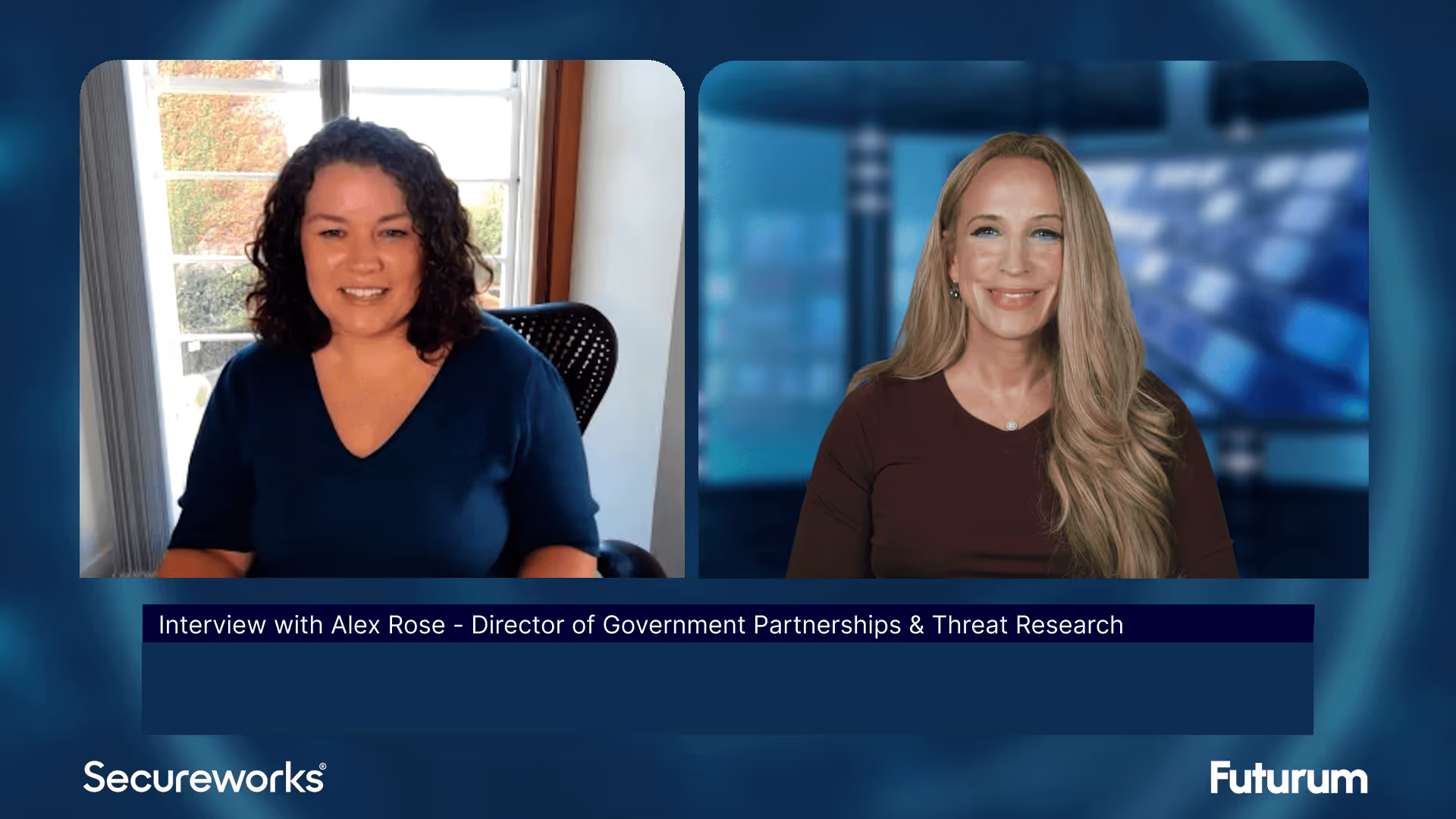
Threat Intelligence: Insights on Cybersecurity from Secureworks
Alex Rose from Secureworks joins Shira Rubinoff on the Cybersphere to share his insights on the critical role of threat intelligence in modern cybersecurity efforts, underscoring the importance of proactive, intelligence-driven defense mechanisms.
QUANTUM
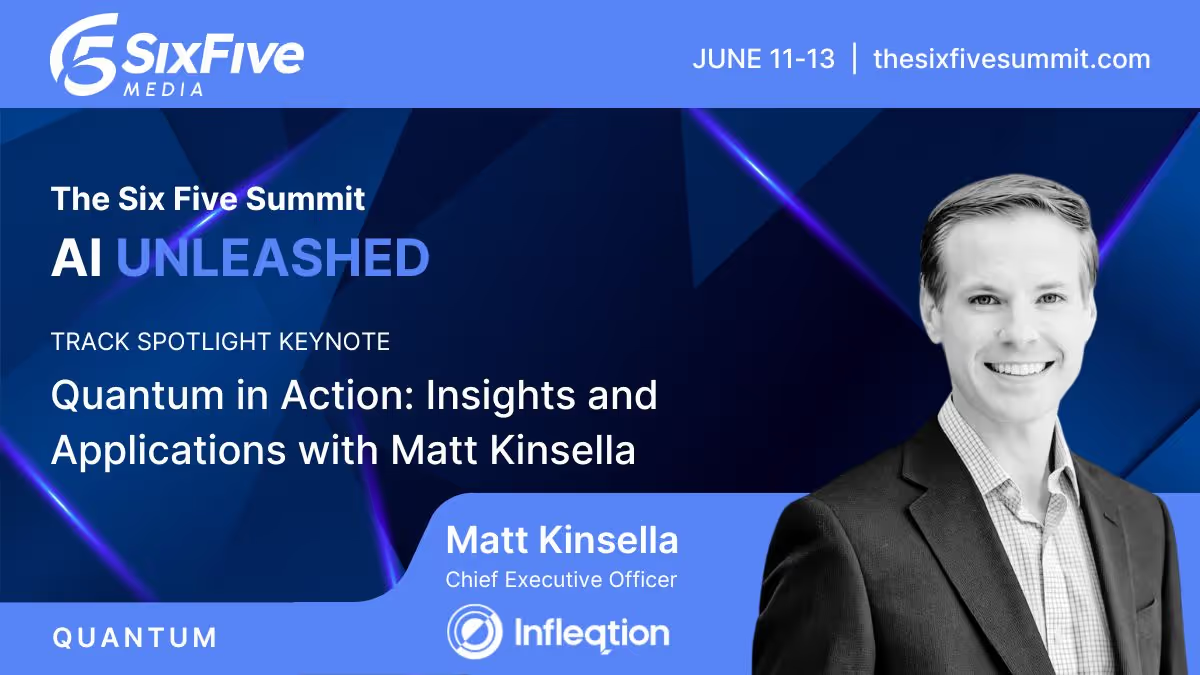
Quantum in Action: Insights and Applications with Matt Kinsella
Quantum is no longer a technology of the future; the quantum opportunity is here now. During this keynote conversation, Infleqtion CEO, Matt Kinsella will explore the latest quantum developments and how organizations can best leverage quantum to their advantage.
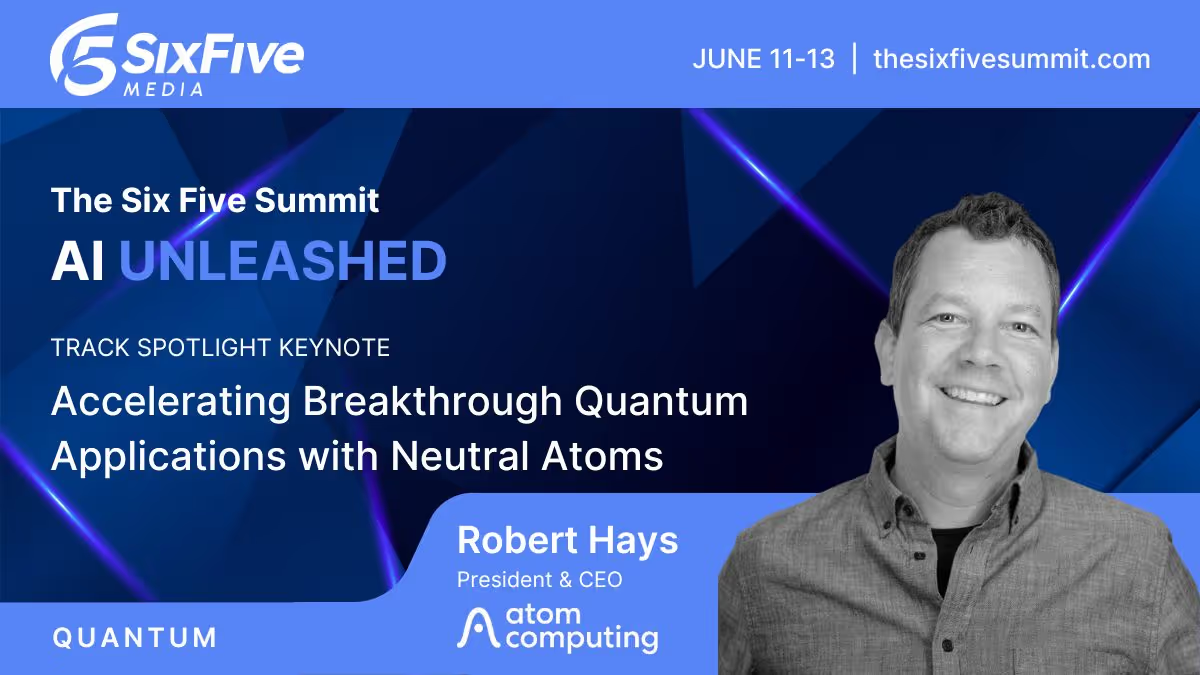
Accelerating Breakthrough Quantum Applications with Neutral Atoms
Our planet needs major breakthroughs for a more sustainable future and quantum computing promises to provide a path to new solutions in a variety of industry segments. This talk will explore what it takes for quantum computers to be able to solve these significant computational challenges, and will show that the timeline to addressing valuable applications may be sooner than previously thought.



